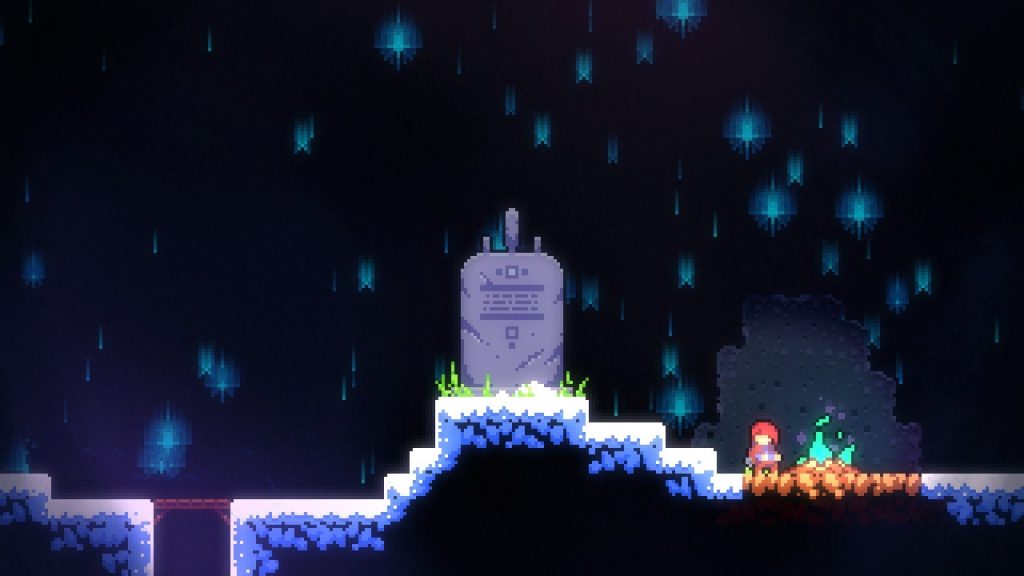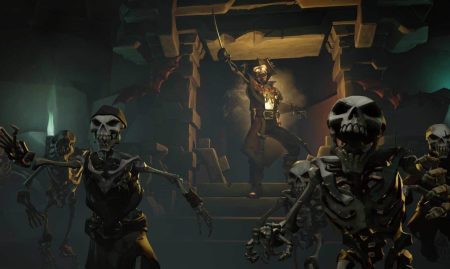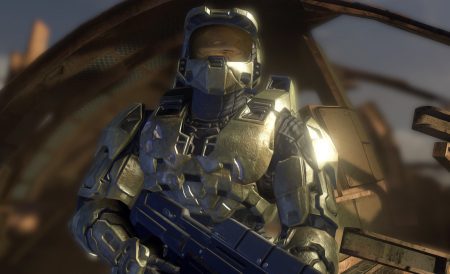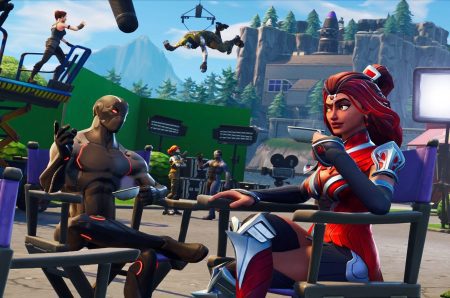Welcome back to Punished Chat, where I’m joined by a fellow video game enthusiast to discuss topics I’m sure several of you might find interesting. For this edition, I spoke with this very site’s editor, David Silbert, to go over our 15 favorite games of the PlayStation 4 and Xbox One console generation.
Sam: As we approach the next generation of consoles, we wanted to talk about the best games of this generation and give our personal lists of the best 15. Personally, I find when we talk about best games of the year, or best games of the decade, it often becomes an arbitrary list about a random period of time that doesn’t necessarily describe what that time of gaming was like. But when you focus in on an actual generation, I believe it’s much more meaningful.
So, here are the parameters:
-We each select 15 games for the PlayStation 4 and/or Xbox One.
-These games must have launched on PS4 and/or XB1, so ports from other consoles (e.g., Hollow Knight) don’t count.
-No Nintendo games, as the Big N’s consoles have spanned multiple generations.
-No enhanced ports, remasters, or straight-up remakes.
-Cross-generation games are allowed, as well as remakes that are full gameplay/story re-imaginings.
Now, David, before you reveal your list, what was your philosophy in creating it? Did you just want to list the games you enjoyed the most? Did you want to make sure you “checked every box”? What did you do?
David: My case is a little interesting, as I’ve made a habit of keeping a list of my favorite games. Every time I complete a game, if I think it’s worth recommending to a friend, I’ll add it to this list, which is about 200 strong at this point.
So I have a very detailed, to-the-point list already, but I did try to take diversity into account. I took out any franchise repeats right away, trying to keep it to just the one best entry from a particular franchise. There’s also one game I took out because it would be a little arduous to defend. It’ll be an interesting one, but when I say it you’ll be like, “Yeah, I can see that.” Otherwise, I just love these games, and I hope other people would agree too.
S: I think I approached my list in a similar way, trying to make sure certain franchises weren’t repeated. I also wanted to make sure that I was honest with this list, but also that I wanted to highlight some games that are just more interesting. Like, if I wanted to, if we expanded this list to include Nintendo games, I would just have Super Mario Odyssey, Breath of the Wild, Super Mario Maker 2, Super Smash Bros. Ultimate, and then the list wouldn’t be that compelling or interesting.
Do you think there are a lot of surprising entries on your list, at least ones that I would be surprised about?
D: I say it as if it’s almost a bad thing: I think most of my list is pretty mainstream. Not that I go out of my way to do that, but it’s just honest. But you also know that, on the site, I like highlighting games that are lesser known. I like sharing those hidden-gem games people are always looking for but can’t always find. It’s fun to stumble upon something cool, so there’s one on this list that’s probably unlikely to make other lists. I have two to three potential surprises as well, but one that I can say with certainty most people haven’t played.
Whenever I think about the generation, I try to think “were there a lot of surprises?” For this gen, I think there were a lot of known quantities, so I hope, looking to the next gen, there will be a lot of cool indies trying to push gaming forward.
S: It’s funny; when I started constructing this list, I thought it would have mostly bizarre, weird, indie or pseudo-indie games, and when I finalized the list, it had a lot of mainstream AAA titles on it. So there are actually going to be some games on this list that you and I have not talked about that you might be a little surprised to see there.
Let’s just get to it! Fire off your list, in alphabetical order:
D: Here’s what I’ve got:
Bloodborne
Celeste
Final Fantasy VII Remake
Furi
Horizon Zero Dawn
The Last of Us Part II
Life Is Strange (plus the prequel, Before the Storm)
Metal Gear Solid V: The Phantom Pain
Ori and the Will of the Wisps
Overwatch
Sekiro: Shadows Die Twice
Uncharted 4: A Thief’s End
What Remains of Edith Finch
The Witcher 3: Wild Hunt
The Witness
So, that’s my list.

S: Was Furi the “outlier,” so to speak?
D: Yeah! It’s not mainstream, but it’s not that odd a choice, I guess. It didn’t review particularly well, but I loved it. It’s one of my favorite games of this generation and maybe one of my favorite games, period. So whenever I get the chance, I love to shout it out.
S: I definitely have a game like that on my list. Let me share:
Assassin’s Creed: Odyssey
Celeste
Final Fantasy VII Remake
Forza Horizon 4
Inside
No Man’s Sky
Rocket League
Sea of Thieves
Marvel’s Spider-Man
Star Wars Jedi: Fallen Order
Titanfall 2
Uncharted 4: A Thief’s End
The Witcher 3: Wild Hunt
Wolfenstein II: The New Colossus
Yooka-Laylee and the Impossible Lair
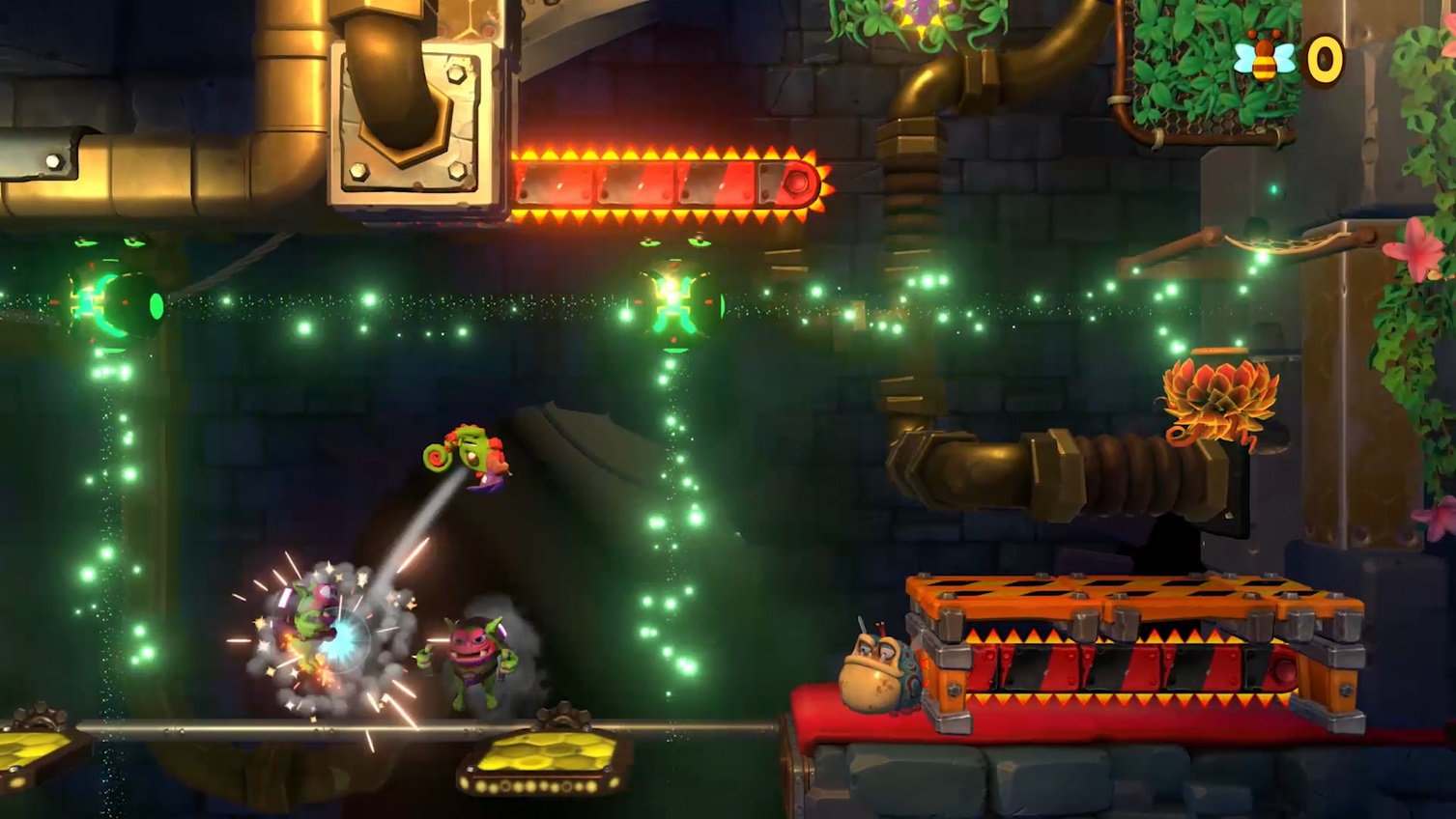
D: Nice! Yes! Nice!
S: Honestly, putting Yooka-Laylee on this list is kind of cheating, because it’s the most Nintendo-like game on a list where we’re not allowed to have Nintendo games.
D: I should also say that Assassin’s Creed: Odyssey almost made my list, but I left it off because I don’t want to include games I haven’t finished. But it absolutely deserves to be there.
S: I just want to go back to Yooka-Laylee for a second: The original game was a big Kickstarter project, and it was okay. It was a decent, above-average 3D platformer. Not bad, but not special either. Then Impossible Lair comes out, and it’s genuinely a GREAT 2D platformer. Critics didn’t make much of it, but there’s a huge number of YouTubers and Nintendo fans who were like, “This is what I’ve always wanted from the indie community.”
One of the reasons I included it on my list, besides the fact that I really enjoyed it, is that Kickstarter games have been big over the last decade, as well as indie games that tried to emulate games we grew up with, and I think Impossible Lair is one of the best versions of that kind of game. It feels unique, but is still mostly for people who love Donkey Kong Country, like me.
D: I picked it up a while back, per your recommendation, so I’ve got it sitting in my backlog; I just haven’t gotten too far into it. The funny thing is, I didn’t grow up with DKC, so I kind of have to just go by your word that it’s everything it’s cracked up to be. Maybe I’d have more of an appreciation for Yooka-Laylee if I started there.
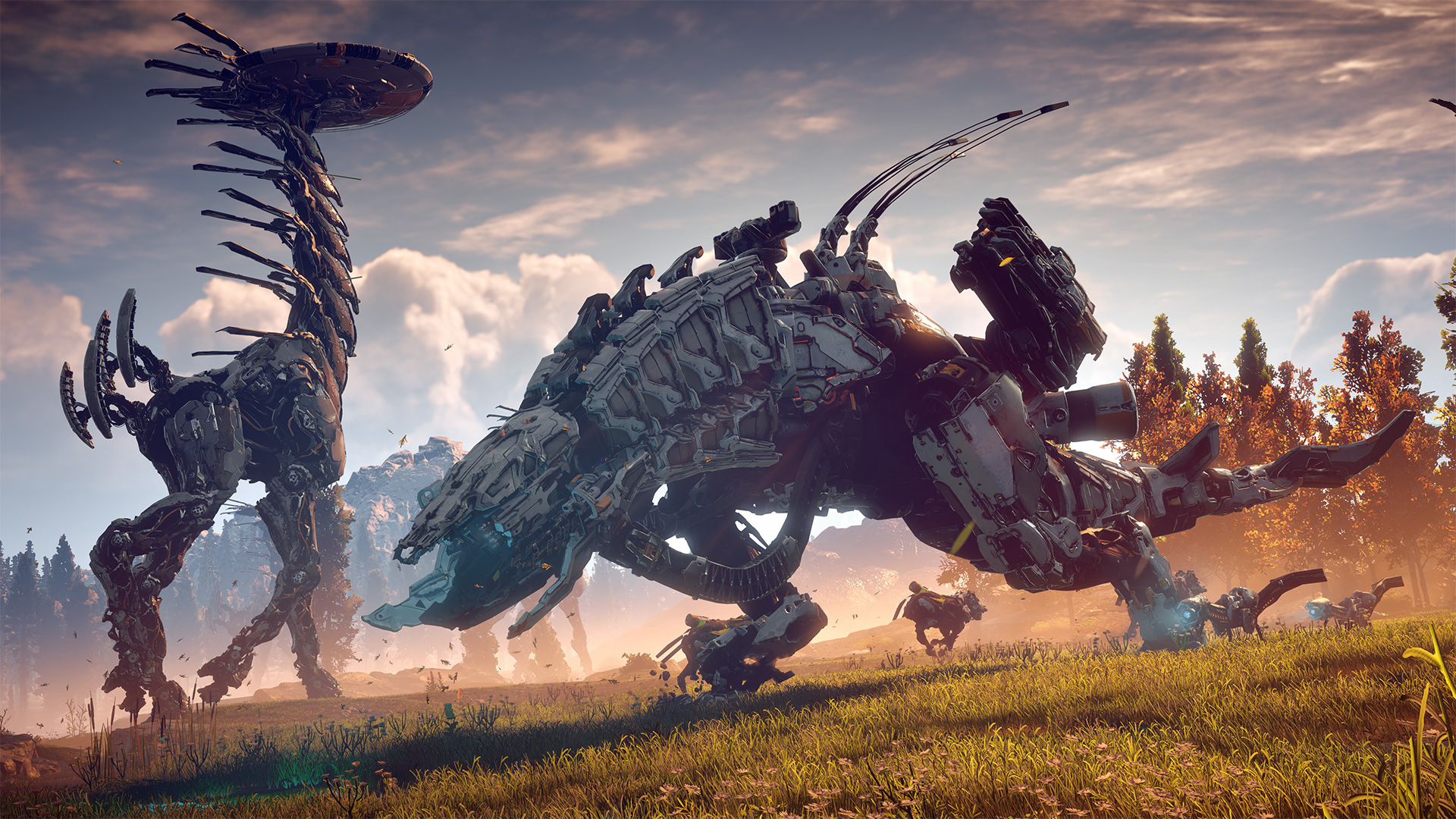
S: Since we both just talked about the games we have on our lists that basically nobody else would have, do you think your list accurately reflects what this generation of games was like? When you think of what the industry was capable of in this generation, do you think your list highlights those games?
D: When I think of this generation, I think of—not “pushing boundaries” necessarily—-but, rather, what could we do that we couldn’t do before? With the upgraded visual prowess and specs we have on these machines, how could we push scope and scale for these games? A lot of the time, it’s to excess, and you and I generally agree that sometimes big, open-world games go too far with this.
In that respect, absolutely, my list has these kinds of big games. We got The Witcher 3, an open world done right, but also Horizon Zero Dawn, which I love, though I’m a little conflicted about. I loved its story and world, and I can’t wait for the sequel, but it was WAY too big. In my eyes, it could have been half the size, and I would have enjoyed it even more. Plus, there’s Metal Gear Solid V, which has silky-smooth gameplay with open-world influences. When I’m looking at my list, THAT’S what I see.
There are a couple of things I omitted from my list, like battle royale games. Not that I don’t think a certain one doesn’t deserve to be here. But, largely, when I think of this generation, I think of games that were bigger and badder, though it begs the question: “Is that a good thing?”
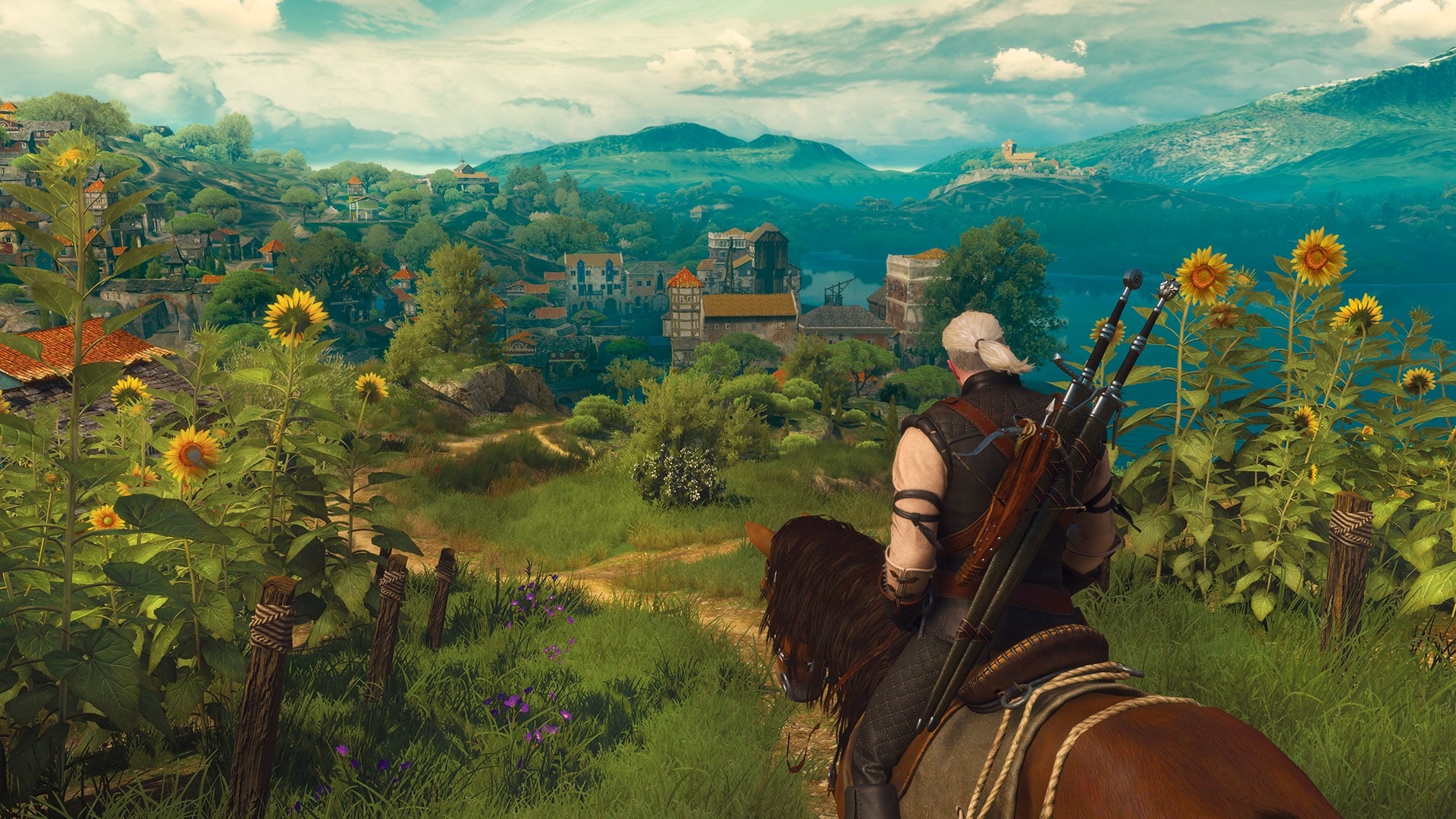
S: The games I highlighted on my list that have open worlds—such as The Witcher 3, AC: Odyssey, Forza Horizon 4—they made sure that the world had cultural interest and intrigue. One of my favorite things about The Witcher 3 is that every single part of the continent has boxing matches, card tournaments, horse races, etc. So you always feel like the world is big, but not big just so I can go into caves and kill skeletons. Those kinds of quests exist too, but in TW3 I really feel like I’m part of the world. I think that’s something a lot of games struggled with in the previous generation, where some games were big but were lacking in meaningful world-building.
Also, think about Spider-Man. It’s not original at all, not an original IP, and not an original concept. But the people at Insomniac clearly understood that open worlds only matter if it’s easy to get around. The way you web-sling in that game is so smooth and buttery, and it makes it so that no side quest feels like a slog or a waste of time. It’s not like other open-world games, where you often feel the need to fast travel or spend way too much time on a janky horse. That’s another thing: Horse mechanics haven’t really improved at all this generation! They’re still bad!
D: They’re still not fun.
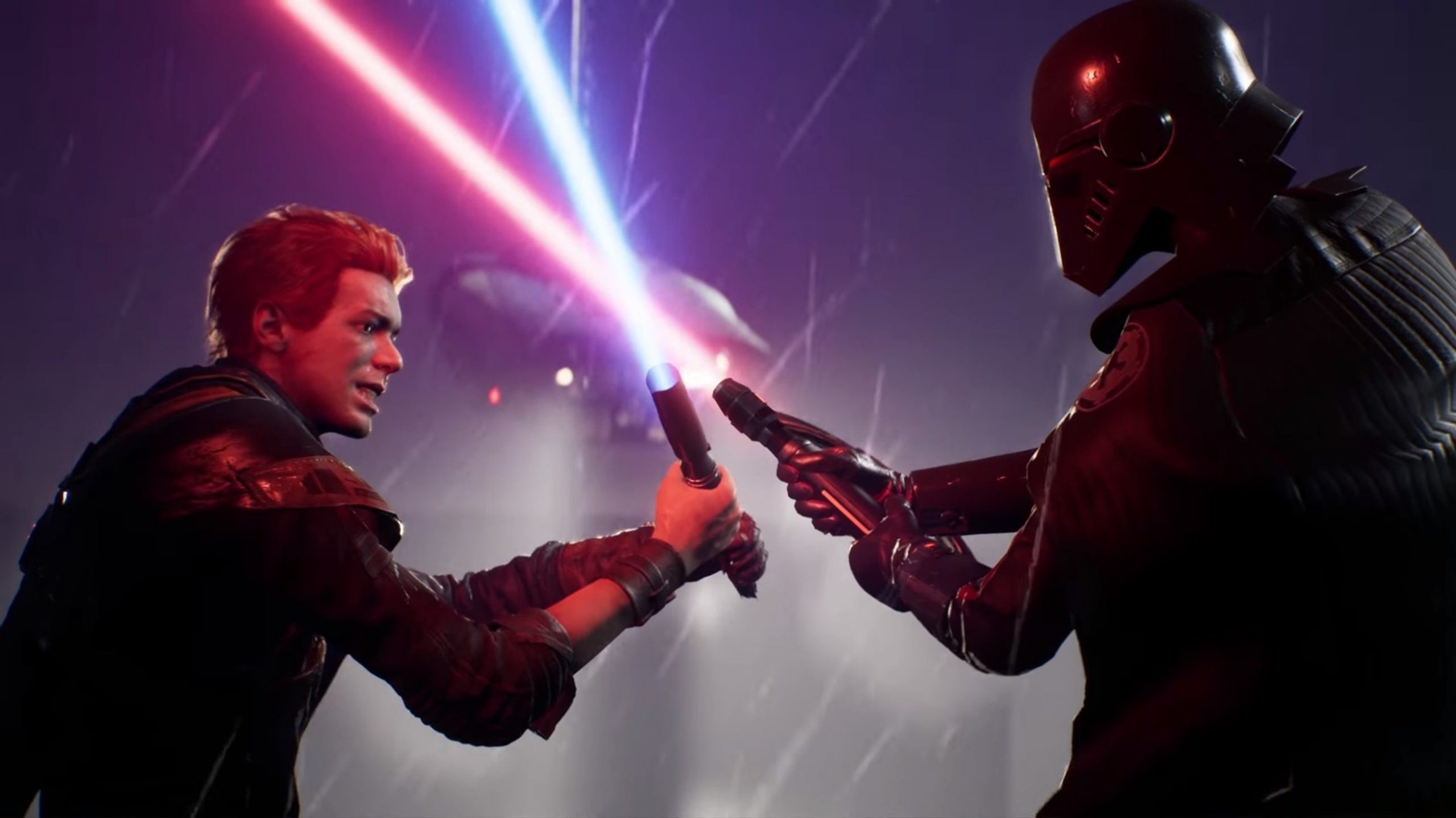
S: So, when you look at the previous generation, namely the Xbox 360 and PlayStation 3 one, there was a major focus on highly cinematic, heavily involved stories. Even games with big open worlds, like Rockstar’s games, tended to have a very linear, story-rich campaign meant to be played in a singular fashion. I think there was less of that this generation, but it was definitely still a thing. Do you think we’re moving away from that, or is that kind of game still going to be prevalent going forward?
D: On my list, the only ones that fit the bill of that scripted experience would be Uncharted 4, The Last of Us Part II, and Final Fantasy VII Remake, but those to me are the cream of the crop. One of the things I liked about MGSV and Witcher 3 was that a lot of those games felt dynamic—like they had a Breath of the Wild-esque freedom. They were dynamic experiences with big open worlds that allowed for more interesting storytelling.
For the next gen, I’d like to see more of those interactive, open-ended experiences. We’re already kind of seeing this with Ghost of Tsushima, which has waypoints that aren’t really waypoints, where you get to organically find things, and the experience is what the player makes of it. Obviously, there is always a time and space for scripted games, even if it’s a linear experience that’s meant to be played a certain way. But with open-world games, there’s a lot of fun to be had where it’s purely the player’s fun in a giant sandbox.
S: It’s funny; a lot of games from this generation that fit that bill—namely the highly cinematic, linear stories with tinges of open-world design—didn’t make either of our lists. Batman: Arkham Knight wasn’t on either list. God of War wasn’t on our lists. Obviously we both have Uncharted 4, and I included Jedi: Fallen Order… though I actually think that game’s a little different.
The reason I included Fallen Order was because “souls-like” games were really popular during this time—after all, you had Bloodborne on your list—and I never cared for them. Fallen Order, though, was the one game in that style that clicked for me (besides Hollow Knight, which didn’t make this list only because it was a PC exclusive first).
It was challenging, but not oppressive. There’s still the tension and non-linearity, but it allowed for a little more leeway mechanically. It was a good platformer, too!
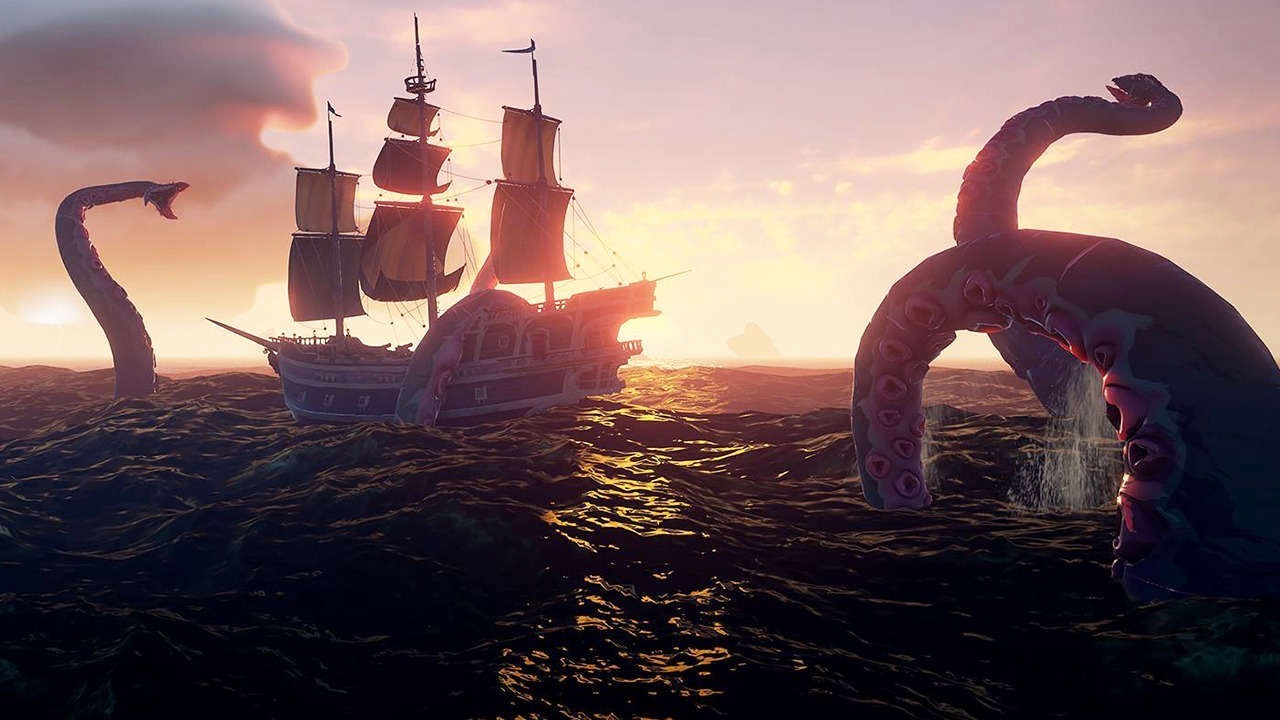
Anyway, you mentioned players making their own fun as sort of a recurring theme of this generation. Two games on my list embody this idea fully, in my view: No Man’s Sky and Sea of Thieves. I think in ten years, we’re going to look back more fondly on those games than we will on games like Uncharted 4, even though I liked that game a lot.
Looking back at U4 will be like re-watching an old Mission: Impossible movie or one of the James Bond movies that isn’t that famous, where it’s a good time but not necessarily a memorable one. Whereas the cinema that’s more weird and interesting in its own time tends to hold up better later on. Just look at how people talk about Starship Troopers now compared to when it came out. That’s what No Man’s Sky and Sea of Thieves are for me.
D: I could totally believe that. While Naughty Dog tries to be perfectionist and sets really high bars for itself, I think when you have a scripted game like that, you might love it for a moment in time. But one of the reasons I love games, and why we all love games so much, is when we feel that player-driven sense of discovery.
For example, and I know neither of us has this one on their list, but one game of this generation that so many people loved was Outer Wilds, and that’s a great example of a game where there’s a story to be uncovered, but it’s ALL open to the player. You have to discover, on your own, the mysteries of this world and create your own path to the end. Those are the kinds of memories you craft, like different times sailing the seas with your friends in Sea of Thieves or finding a cool planet in No Man’s Sky. I can totally see how you’d remember those games especially fondly in the feature.
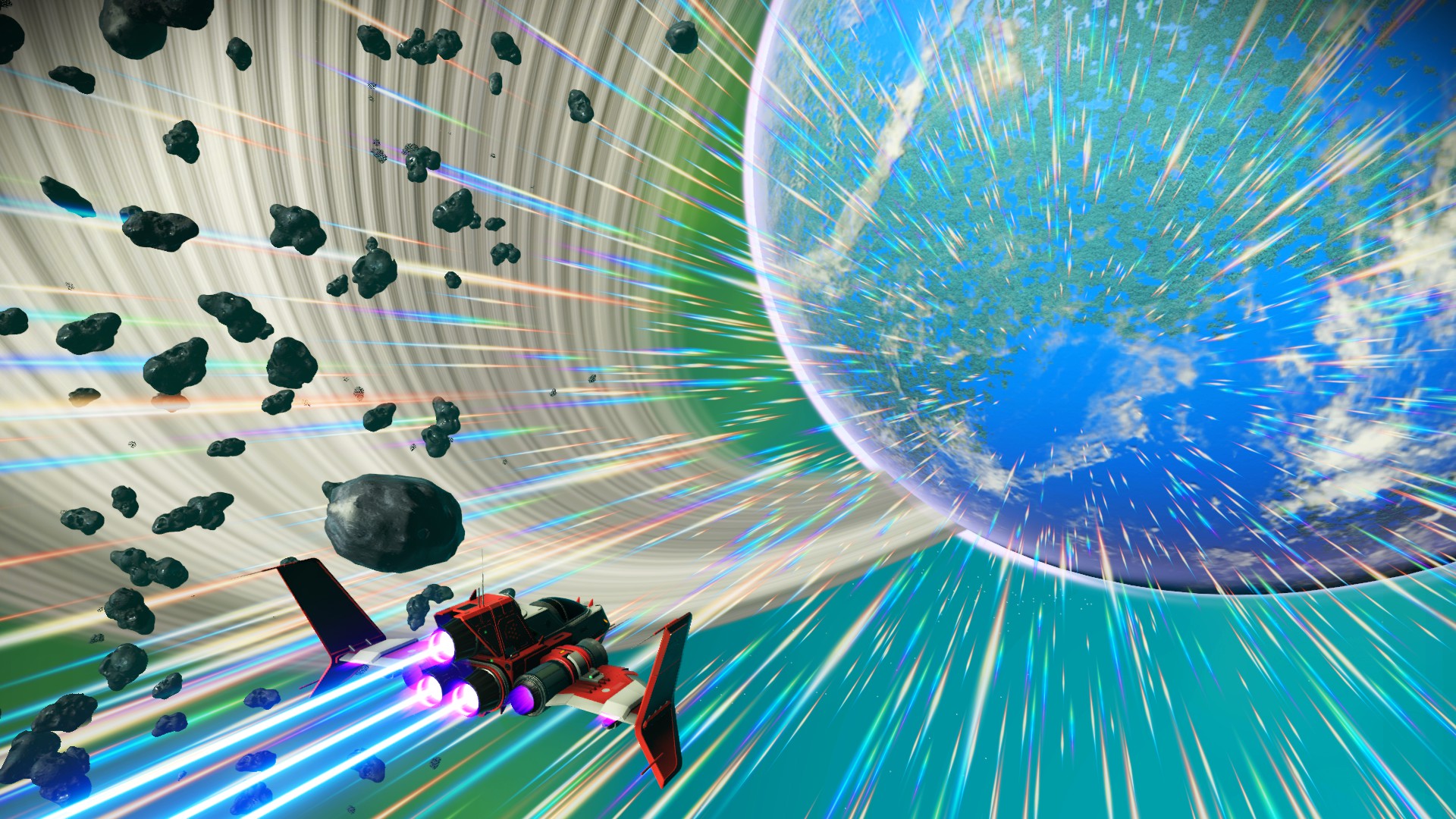
S: Something I talked about in my TLOU2 notes is how a lot of people inside and outside of games want the medium to be more like films or books, because that would legitimize it as an art form. But when we actually think about the games we like the most, they’re typically games that are not at all like films. The experience I have when I play No Man’s Sky is that I’m playing a game that’s basically about nothing narratively, but that you can do whatever you want in this universe. You can just live in the moment and decide to spend more time on a planet you like, or travel to a new planet just to see what’s there. That’s an experience you can’t really recreate in any other medium.
Another reason I wanted to include No Man’s Sky: It was a disaster at launch, woefully falling short of expectations. But every year it got better and better, and it’s finally gotten to a point where many would consider it a genuinely great title. And that’s just how games are released now, where the product you get on day one may not be the final version. That isn’t quite the case with, for example, a Naughty Dog game, where the narrative is the main draw, so you have to get it right at launch. They can’t really make the story better later on.
D: I think that’s a good point, and looking at my list again, one of the cinematic games that really stands out is Uncharted 4, where it really takes a lot of resources and a lot of effort to create that kind of movie-like experience. I don’t think movie-like games are impossible, but they just take an extraordinary amount of resources, and it takes a toll on your studio. And, as you said earlier, it’s a “point-in-time” thing, where it will age as technology advances. That’s kind of the danger there.
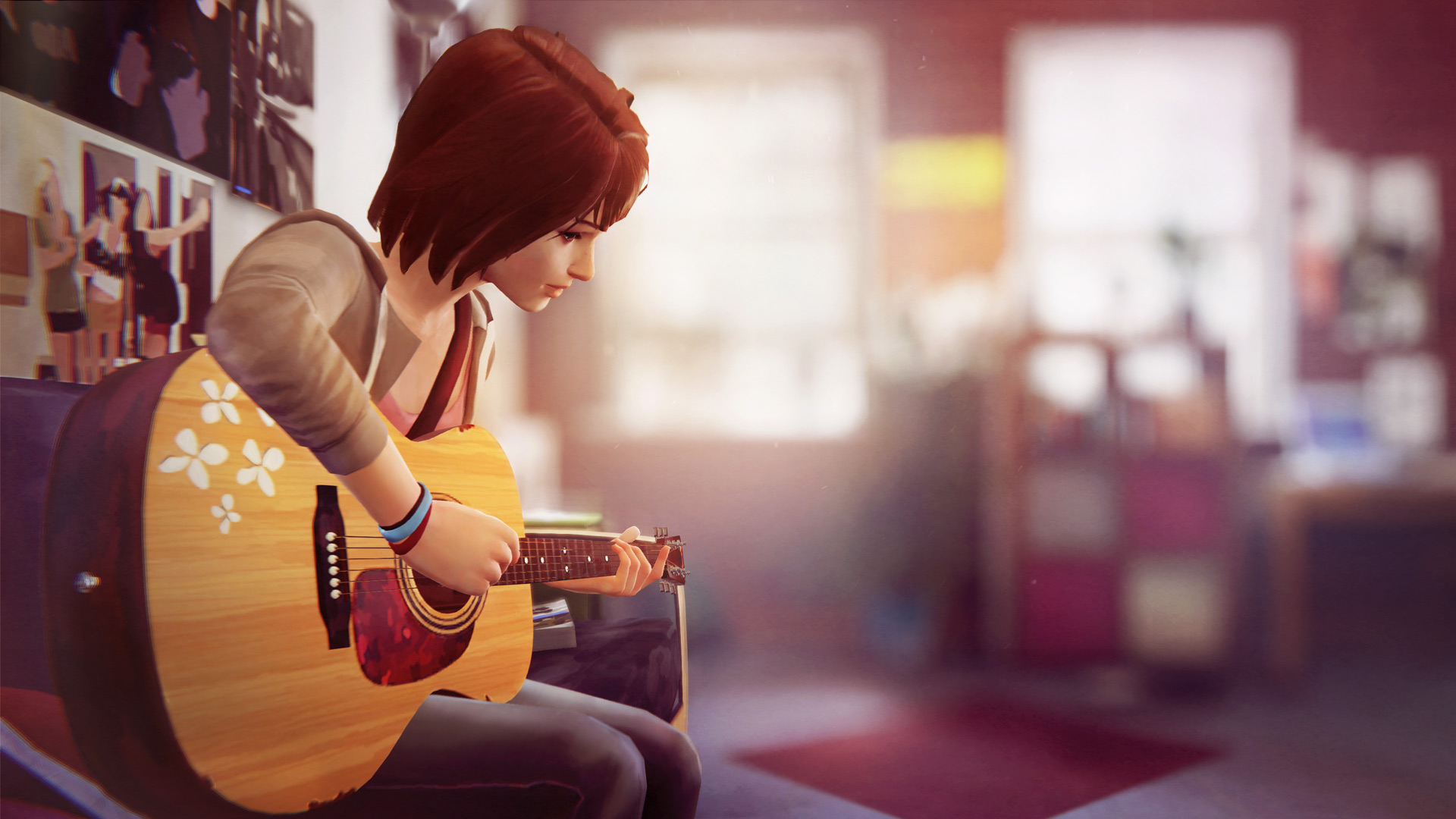
On the other side, I look at a game like Life is Strange. I love that game so much because of how progressive it is compared to other games, telling a still-too-rare story involving mainly women. And the characters are so believable, and among the best characters in any game this generation.
But even with that, that’s a game where you see some of the rough edges. It looks good, but there’s still some uncanny valley going on. The pacing suffers, because it lacks that trim, point-to-point movement of a Naughty Dog game. It’s like watching a movie unfold, but you’re interacting at parts. That’s where I hope we’re going with adventure games in the next gen; I hope we figure out how to make these kinds of branching narrative experiences even more engaging than they are now.
I could see, though, how it’s difficult to achieve that if you’re not that big a studio and you don’t have the kind of resources that a big AAA developer might have. I tend to agree with you that we should do more to embrace the interactivity of games, and focus less on trying to just make games feel like movies.
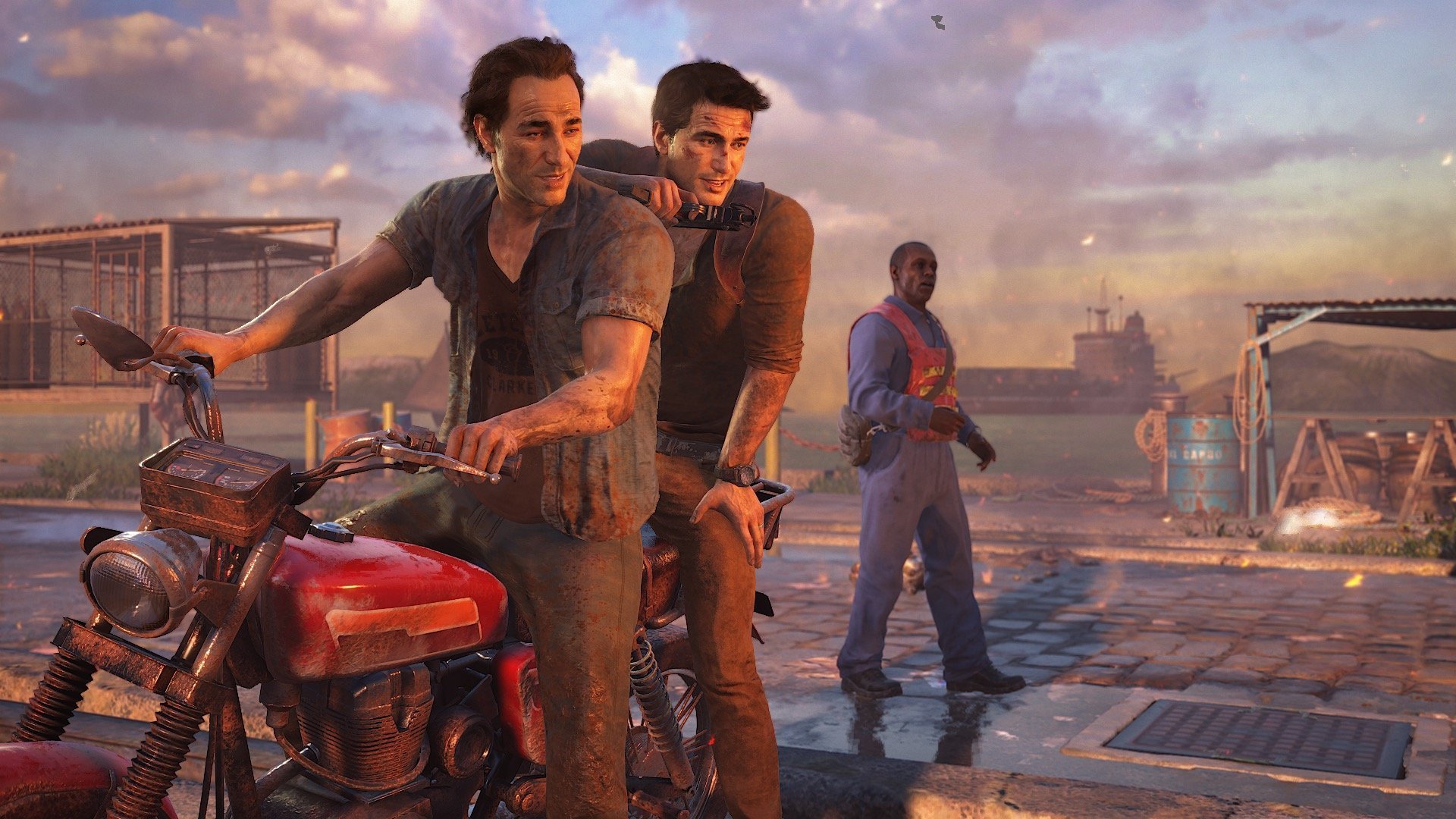
S: I want to get back to Uncharted 4 for one more point. As you know, I played every single Uncharted game back-to-back-to-back-to-back over the last couple of months. Uncharted 4, to me, is the only game in the series (besides the also very good Lost Legacy) that has a story that is genuinely good on its own, and not just good for a video game.
I think we tend to give studios a little too much credit for telling a good video game story when often these stories wouldn’t be considered that great in other media. But Uncharted 4 is almost a commentary on its own existence, where Nathan Drake and his brother are looking for treasure hoarded by pirates, only to see the Drakes’ story mirror that of the very pirates they’re looking for. Nathan isn’t a hero, he’s not a good husband… He’s basically the same as these pirates, leaving destruction in his wake and ending up with nothing. And that’s what happened to Thomas Tew and Henry Avery.
I know the other Uncharted games also tried to have Drake’s journey mirror that of various historical figures of interest, but those games made him seem almost too charming and likable. In Uncharted 4, Naughty Dog basically said, “No, Nathan’s just kind of a dickhead, and his brother’s a dickhead too, and they’re just modern-day thieves.”
D: It asks that next question and takes things a degree further, at least compared to the previous ones. The first three sort of fit into traditional, Indiana Jones-style narratives. But the fourth one really pushed things, asked some more important questions, and addressed some of the ludonarrative dissonance issues of past Naughty Dog games, too.
S: Right, and also the game explores how the game basically exists for a greedy purpose, and Nathan Drake knows that the whole time. Whereas in previous Uncharted games, it’s framed as though Drake mostly wants to make cool discoveries, and in this case it’s mostly that he and his brother want hundreds of millions of dollars and will do whatever it takes to get that money.
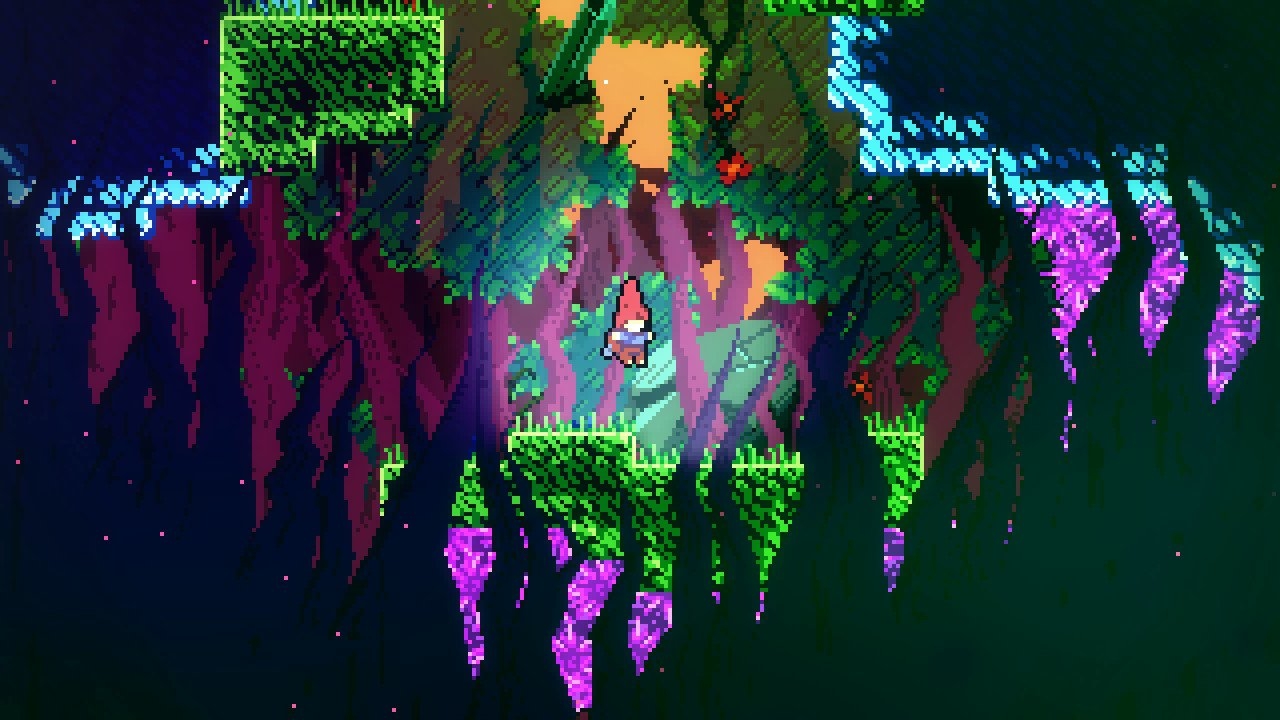
It’s funny; you were talking about how hard it is for smaller studios to tell big, cinematic stories, mostly due to budget constraints. One game that made both of our lists, however, was Celeste. Obviously the gameplay was a big sell for most people, as it’s a great puzzle-platformer with a ton of bonus content. But the way its story explores anxiety and depression—you feel it as you play it. And, honestly, that was a game that kind of came out of nowhere. I hadn’t even heard of it until it was already out and getting rave reviews!
D: Same! Celeste is an interesting example, because I started playing CrossCode on Game Pass recently, and one of the things it brought up for me is: When thinking of indies, like Celeste, I think about how much work Matt Thorson put into that game, with some help for sure, but how each level feels really hand-crafted, from panel to panel.
In many ways, Celeste shows the opposite end of the spectrum from games like Uncharted. Naughty Dog’s development takes a heavy toll on everyone making it, in an effort to push graphical fidelity, whereas Celeste manages to tell an incredible story at a much smaller scale, with each panel feeling beautifully crafted. The story matches perfectly with the gameplay, and the design is so tight that even when I die, I know that’s on me and not a result of any design flaws. I know I can make that jump, and I know I did something wrong.
It’s an example of how creativity knows no bounds, and that you’re not necessarily constricted by any resources when telling a story. It’s about time, effort, love, and care. But game development takes a toll on anyone, so I see how it’s hard for smaller studios to compete with the bigger, badder studios.

S: I do recognize that there’s one game on my list where I’m pretty sure in a couple years I won’t feel the same way about, and it’s Wolfenstein II: The New Colossus.
Sometimes, a work of art comes at at the exact right time, and while I would say The Last of Us Part II, for example, came out at the worst possible time, Wolfenstein II came when that was the experience I wanted the most. The game released just a few months after these hateful, neo-Nazi rallies in Virginia, and amid the rise of neo-fascism. I understand that I’m privileged in so many ways, but being Jewish and seeing Nazis back in full effect was harrowing. So when I played Wolfenstein II, I loved how it didn’t bother to tell “both sides.” It does not give a shit about that. It has 100% conviction in its anti-Nazi messaging.
Obviously, we all want nuanced stories and takes on things, but one of the things I hated about the previous generation of games is that a lot of games tried to sell both sides, but they rarely did it well. Obviously, the quintessential example of this is Bioshock Infinite, but even Braid is kind of ham-handed in its storytelling. We have all these games that try to tell you that everyone is a villain, and Wolfenstein says, “No, those guys are definitely worse!” The gameplay isn’t even that great, but I can’t deny that my experience playing that game was really emotional, and that I had to give it a place on my list.
Do you have any games like that on your list, where you’re not sure if you’ll still feel strongly about it a few years from now?
D: I don’t think anything’s going to age out, but I can give you an example of something I took out because I think that might be the case.
S: Can I guess? Is it Red Dead Redemption 2?
D: No. That’s not a bad guess, though!
S: To be clear, that game almost made my list.

D: That’s another one that I didn’t finish, so I couldn’t put it on the list. But the game I removed out of respect was Detroit: Become Human (both laugh). I feel conflicted about it, especially the parts like, “Did you know that was a quote by Martin Luther King, Jr.?” Yeah, it’s really cringey.
S: That quote by itself made me decide not to buy the game. This game could be brilliant otherwise, but when I saw that, it was a wrap.
D: I totally get it. It’s just something where—and I vehemently hate David Cage, and I hate the culture at Quantic Dream…
S: Did you know he invented video games?
D: I know, right? It’s crazy.
Anyway, the thing about Detroit is that I came in with some high expectations, because I previewed it at Paris Games Week and liked what I played there, and then the game came out and got… decent reception, but nothing crazy. When I went back and played through it, I was surprised, because while some of it was heavy-handed, some of it was genuinely well done.
There’s one part where you play as an android police officer that explores the relationship with his partner, and that felt like one of the most natural relationships I’ve played in any game this generation. I just thought there were a lot of great narrative moments, at least from an acting and writing perspective, that when you add in the user agency that Quantic Dream is known for, it made for a more compelling experience for me.
Being black, I think it’s possible for me to enjoy that game, and not take too much offense to the bungled MLK stuff. At the same time, lots of games can tell great stories and don’t have to put themselves into David Cage’s stupid box, where he claims he’s breaking ground, and that’s just not true. We’ve had stories like these before in games, and we can probably do it a lot better.
Anyway, Detroit has a place on my larger list, but I also acknowledge that it could have been more thoughtful. All games and game companies can be more thoughtful as well going forward.
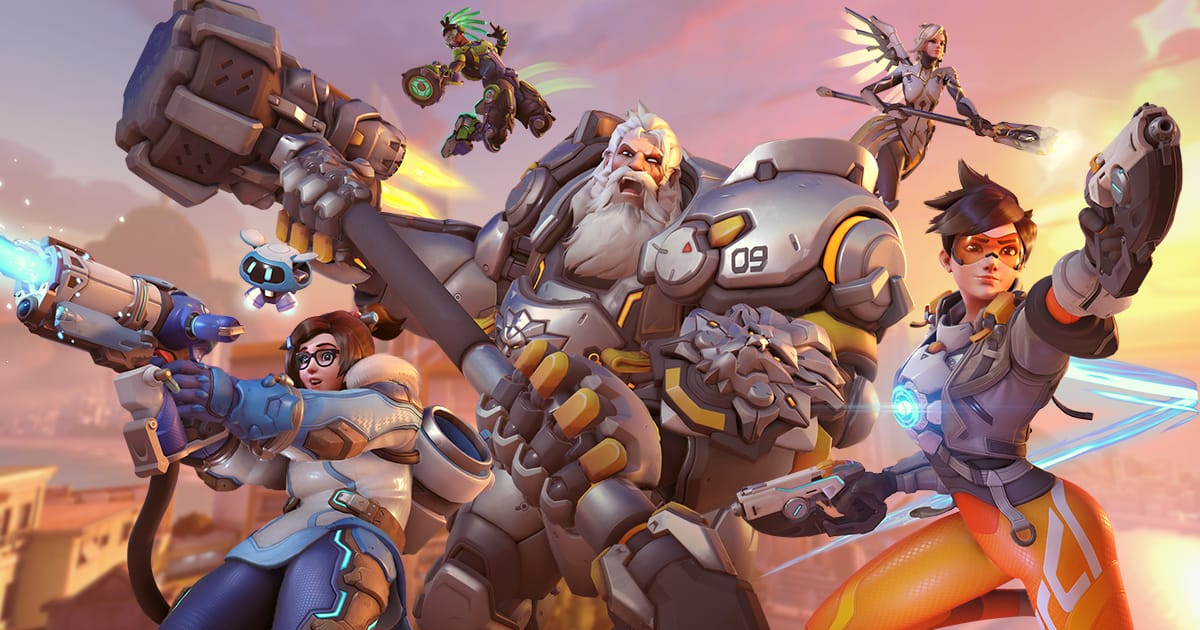
S: Are there any games on your list that we haven’t gone through that you want to talk about more?
D: The other one aside from Life is Strange that addresses the diversity deficiency we’ve seen from prior generations is Overwatch. I think Blizzard has done an admirable job of creating a rich diversity of characters within its universe. It’s something where I love it for the gameplay first and foremost, but the many different kinds of characters makes it easier for me to love.
That’s a trend that’s on an upward trajectory for the medium, now that more people are calling out the bullshit that we’re seeing in terms of labor issues, harassment, and lack of diversity at these studios. Hopefully we’re seeing that trend upward. What about you?

S: (looks at list) Oof, I’ve got a few. For me, Titanfall 2 is the best shooter of this generation, mainly because it wasn’t just trying to be a good shooter. It’s a good platformer. It’s a good mech game. It’s got so much going for it. Honestly, I think it’s so great but it’s really hard to understand why it’s so great unless you’ve played it yourself.
D: I’ve failed there by not playing it. It’s on my to-do list!
S: There’s still time!
Also, Inside is a great example of storytelling without words. I can’t imagine I’ve seen this comparison much, but one of the things I like most about the original Donkey Kong Country games is that I feel like an emotional story is being told merely through the art style, simple gameplay, music, and atmosphere. Even the janky mechanics are part of that storytelling, and I had a similar vibe playing through Inside. Obviously, it’s a lot darker and more menacing than DKC, but still.
In addition, Forza Horizon 4 is great, even though it’s just a better version of previous Forza Horizon games. I love it though, so that’s why it’s there.
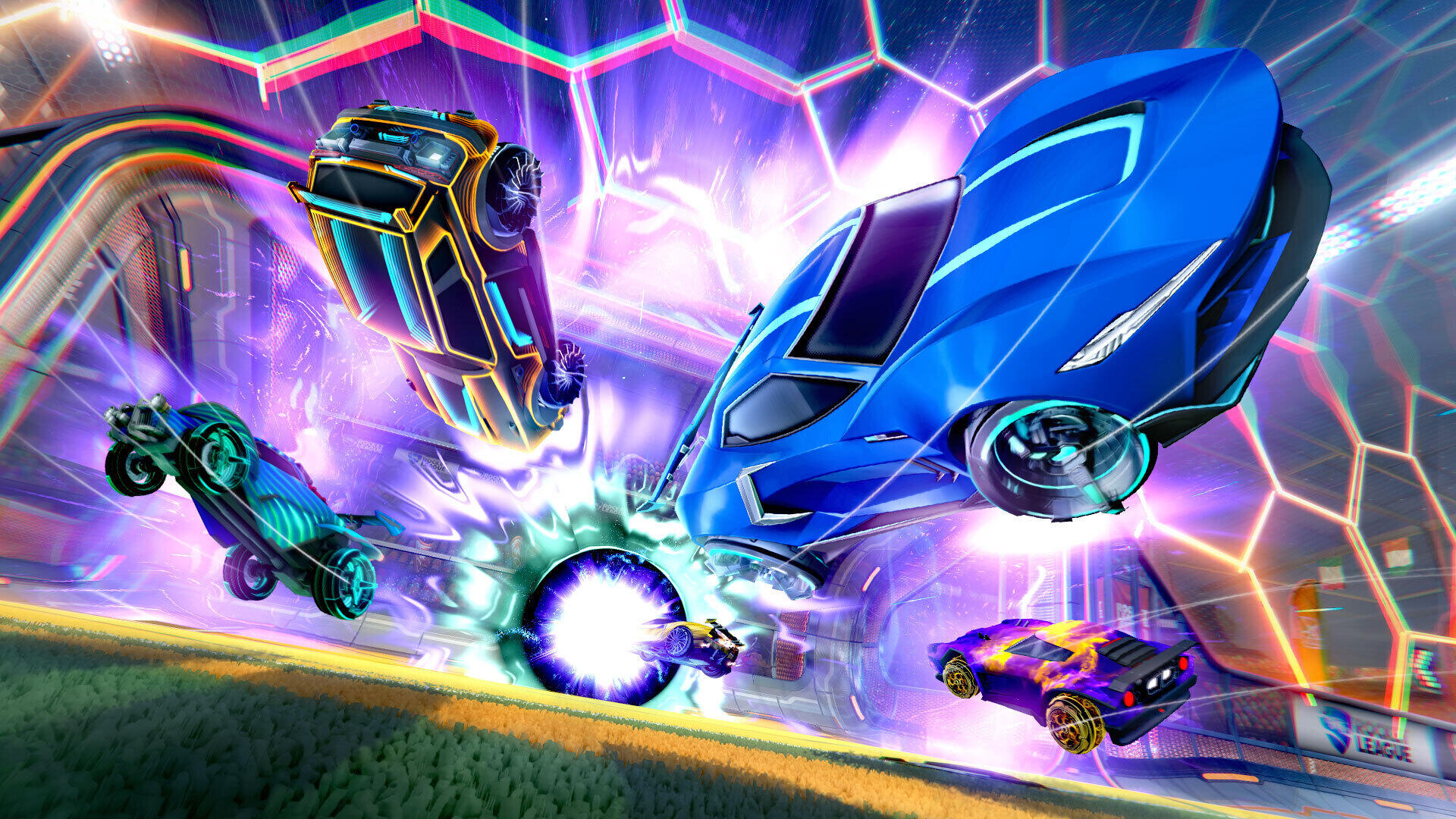
I also wanted to mention Rocket League, which is the game of this generation that ultimately convinced me to buy into the new consoles. It’s a great example of when a concept is so dumb that only a video game could have done it, but it works. It’s kind of like how if anyone besides Lin-Manuel Miranda made Hamilton, it would have been a disaster. It would have been awful.
But Rocket League isn’t just one of the most genuinely fun games of this generation. It’s also the only esport game—and esports became especially big throughout this generation—where you can have no familiarity with the game and still understand what’s happening. It’s the only esport I’ve seen broadcast at a sports bar! And people were getting into it!
Moving on, how would you compare this generation to the last one? Is it better or worse overall?
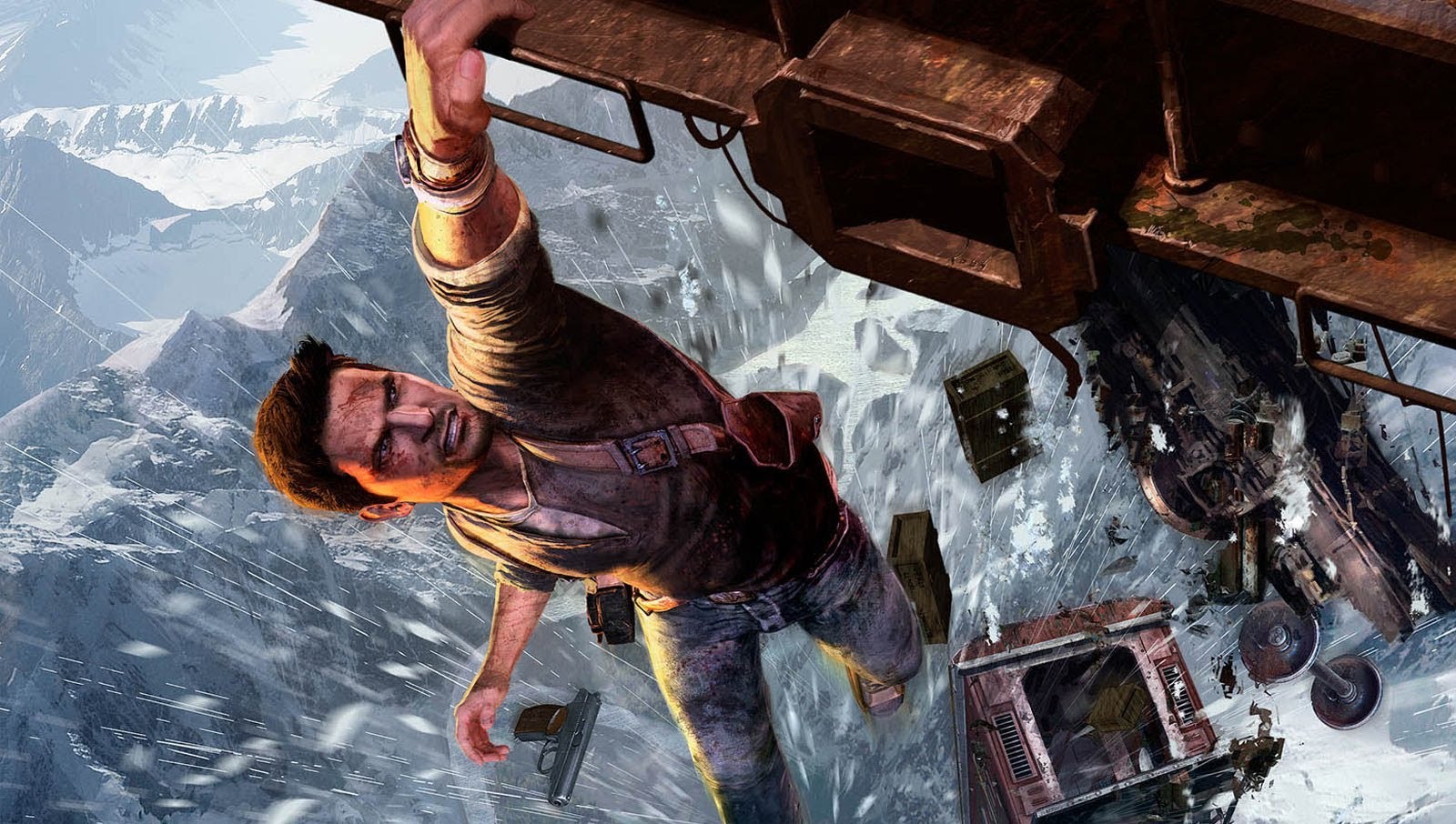
D: Going back to that list I keep updating, my compendium so to speak… Just from a quality perspective, I would say the last generation was better. It’s hard to top so many games I liked from last gen, including The Last of Us, Mass Effect 2, Call of Duty 4, Halo 3, Uncharted 2, and Grand Theft Auto IV. For me, I like all of those games better than the best games from this current generation, even The Witcher 3.
However, in terms of “quality of quantity,” I would say this generation is better. We’ve seen an increased breadth of games recently. We’re seeing more output from cool indie developers, we’re seeing new and inventive franchises, we’re seeing a lot of new IP, and while not all of them have wowed me in the same way, I don’t blame or fault them for that. And I think that matters.
Like I was saying before: More diversity is important, in terms of genre, in terms of indies, in terms of diversity of characters in games and people working in games. That all outweighs my personal feelings for the most part. There might be some biases in play, where I might prefer Uncharted 2 over Uncharted 4 for some random reason (maybe I need to go back and replay it). But by and large, even if the upper crust of the previous gen was better, overall I’ve enjoyed this generation more.
S: While I think the last generation had a lot of great games, I think a lot of those games were sort of “one-upped” by titles that came out in this generation. I think Assassin’s Creed: Odyssey is way better than any of the older AC games. Even though I love Halo 3 and used to love Modern Warfare, I think Titanfall 2 is better than both of those. I also love the first Forza Horizon, but Forza Horizon 4 is better.
I would say, though, that the most significant aspect of the previous generation is that developers largely “figured out” how to effectively homogenize genres. If you played a third-person shooter in that generation, and there were A LOT of them, all of them kind of felt like Gears of War or Uncharted. If you played a first-person shooter, they were either slow and floaty like Halo or really fast and twitchy like Call of Duty. If you played a third-person game with hand-to-hand combat, it played like Assassin’s Creed or Batman: Arkham. Arguably, Dark Souls kind of threw a wrench into a lot of RPG conventions, but then eventually everything kind of felt like Dark Souls.

I still look back on the last generation fondly for the most part, and some games still hold up really well. But I remember playing Modern Warfare Remastered a couple years ago and thinking, “There’s way less going on in this game than in shooters now.” I can’t deny that, at the time, Modern Warfare was like nothing we’d ever seen before, but it just doesn’t feel the same now. Like, Fallout 3 is one of my favorite RPGs ever, but I know if I played it for the first time now I probably would think it was just janky, awkward, and empty.
Side note: We didn’t talk at all about Final Fantasy VII Remake!
D: It’s good! Real good!
S: We’ve both talked about it and loved it. It’s really good!
D: So good. Just adding on to the previous generation discussion: In the vein of Dark Souls being a trendsetter for a new generation of combat and world design, if you could isolate a game from this generation (outside of battle royale games like Fortnite) that could maybe set a new genre for games for the next generation, what would it be?
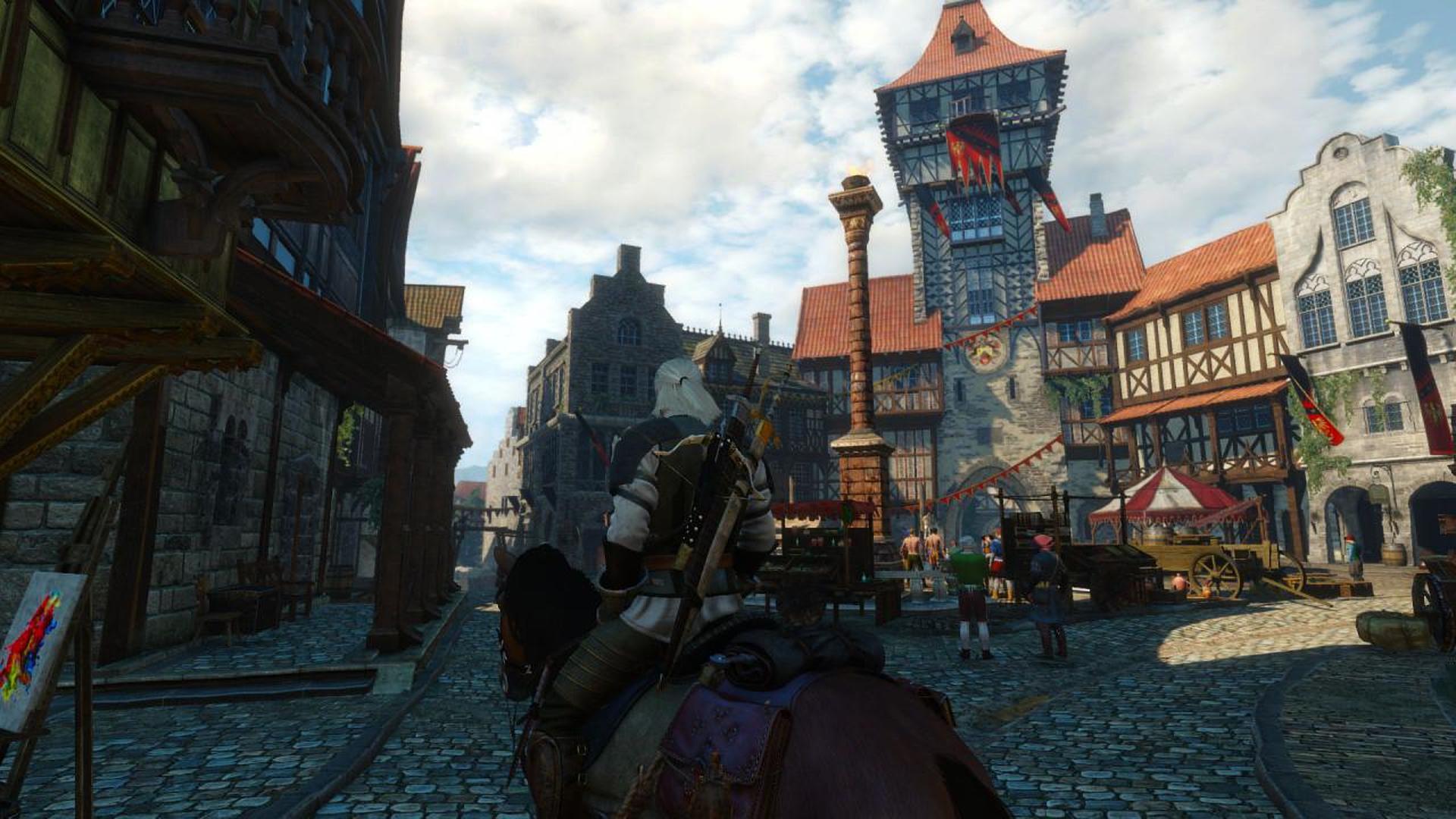
S: I mean, the answer probably is Fortnite, but I also think The Witcher 3 is the game that changed the way people view open-world storytelling. We’ve already seen that influence with Assassin’s Creed, and maybe even Horizon Zero Dawn. I think that’s going to be the legacy of The Witcher 3—that it changed how we view open worlds.
But in terms of how, say, Minecraft changed everything and Gears of War changed everything, or Dark Souls, that answer is probably Fortnite. It’s not just the battle royale or building mechanics; it’s that the game can host a Travis Scott concert or show Inception while people are playing. I don’t care for that stuff much, but I think it’s cool that it’s happening.
D: Yeah, honestly that stuff is pretty incredible. Fortnite has to be number one on the list in terms of influence. I’ve never seen anything like it, and for better or worse it’s changed everything, also in terms of monetary policies and outreach.
S: Definitely. Anyway, I think you and I overall agree that the best game of this generation is The Witcher 3.
D: Yeah, for sure.
S: My friends have already started to get annoyed by how often I talk about it. Like, anytime they mention a new open-world game they’re playing I always jump in with, “YOU KNOW WHAT’S A REALLY GOOD OPEN WORLD RPG?!?”
D: “You know what you REALLY SHOULD PLAY is Witcher 3, right?!”
S: I know I’m being annoying, but I won’t change. I just think it’s one of the only big AAA RPGs I’ve played that has so much heart to it, where, for example, I genuinely was happy to see Yennefer whenever she was on screen. I knew Geralt loved her, and with the way I played the game, I kind of felt the same way. And the game gives you the open concept to let you do whatever you want, but also has a story that really matters and resonates.
D: It does so many things right, and I’m just sad I still haven’t finished it (as you always joke, it’s a game that never really ends). I still need to get to the end and fight the final boss.
S: Honestly, that actually might be one of the least interesting parts of the whole experience.
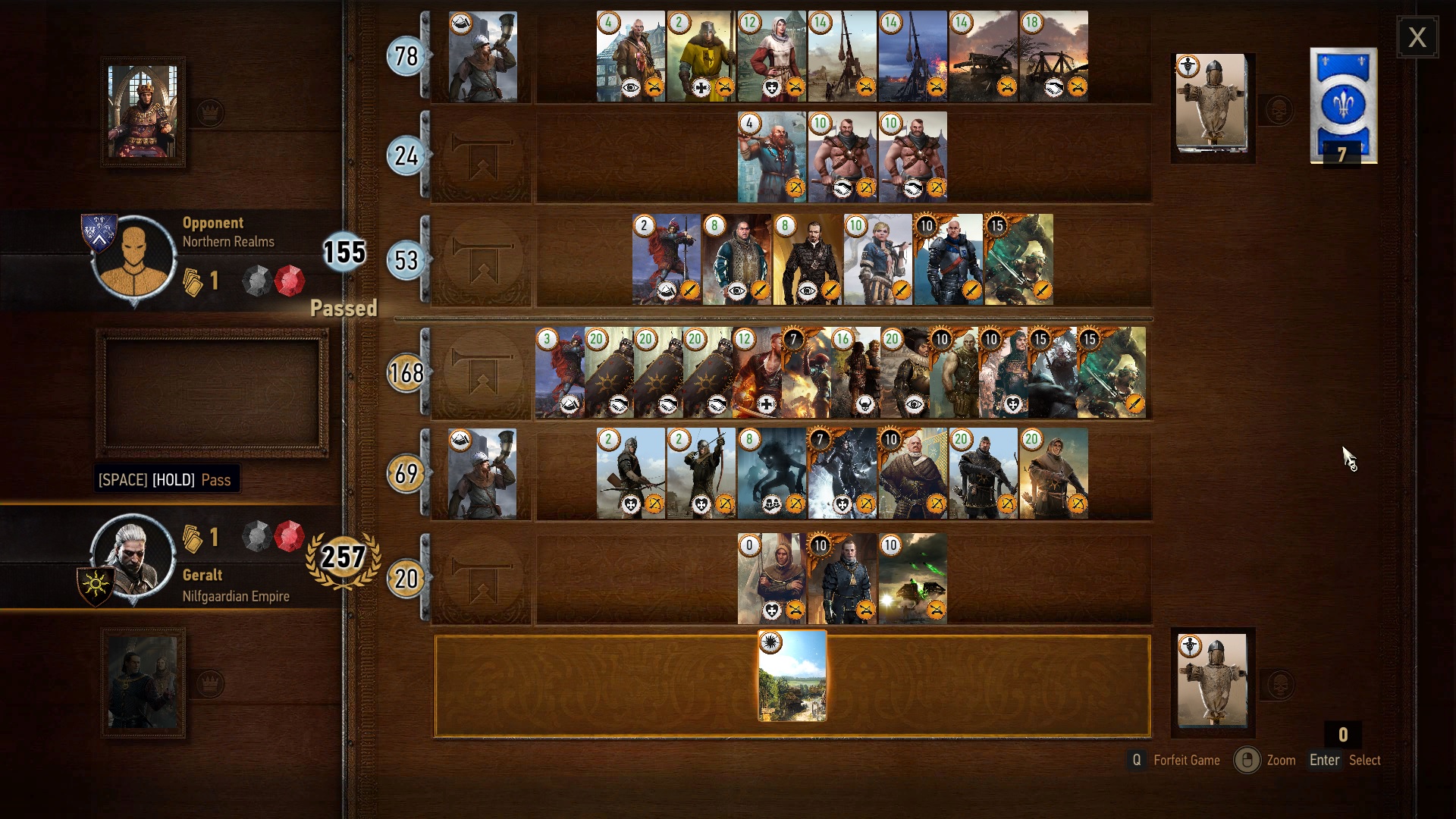
D: But also… I love all the characters, but I’m also such a sucker for having such a sense of place, and good world-building. Plus, Gwent is such a great meta-game. There are so many different kinds of activities, and even though the horse controls are bad (they always are), everything else about the game is great.
During times when I have a free weekend and don’t know what I want to do, I can always put on The Witcher 3 and immediately get lost in it. I’ll enjoy it, enjoy some side quests, play some Gwent, listen to some music. It’s consistently the best experience I’ve had this gen, and it never goes away. Every time I pop it in, I’m enjoying it more than whatever I just played.
S: I got into The Witcher 3 around a time when I’d just started writing about video games, and I’d largely ignored the AAA space for years because I was not in love with a lot of titles that were coming out. TW3 honestly made me reconsider what exactly good games are. Obviously, I had tried some of the big-budget titles of the previous era, but most of the open-world RPGs from that time didn’t really vibe with me. But The Witcher 3 brought me back into loving big console games. It made me want to keep playing games like this forever.
Anyway, the last question I wanted to ask was this: What are some games that just missed your list? You mentioned Detroit earlier; I mentioned Red Dead Redemption 2 (even though I have a lot of problems with the game). What else?
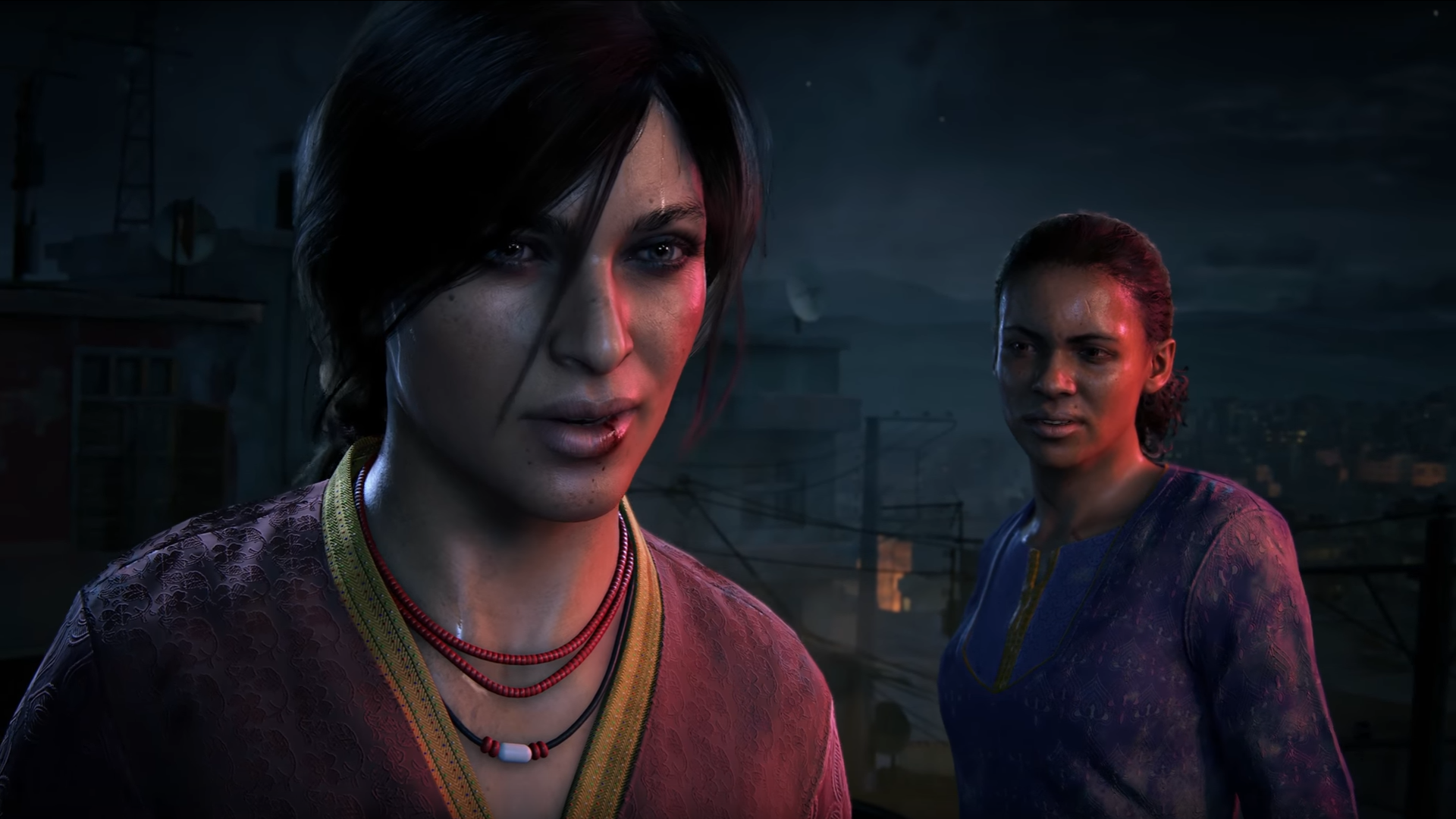
D: So I took out a couple of repeat franchises. Ori and the Blind Forest would have made the list, as it’s an incredible experience, and Ori and the Will of the Wisps is just as amazing. But out of respect for other franchises, I decided to just make room for everyone.
Also, Ratchet and Clank (2016) was a phenomenal re-imagining. I thought it was really good! For a game like that, as much as I like it, there are SO MANY Ratchet games, and we’re getting another one for the PS5 soon anyway that I’m sure will receive a lot of acclaim in its own right. So this just didn’t feel like the generation for that franchise. It was more Spider-Man’s time for Insomniac.
Uncharted: The Lost Legacy belongs here as well. It was a fantastic game, with a great showing of diversity from the studio…
S: Well, great diversity with the characters. Both Nadine and Chloe were voiced by white women!
D: Yeah, for sure, I need to make that distinction! But I also love the idea of having games that are bigger than an expansion but smaller than a main entry. Lost Legacy, still, was more impactful than other long, big-budget releases. It was a great example of a game that had the right scope in mind, and I hope Spider-Man: Miles Morales really does take from Lost Legacy in the best ways.
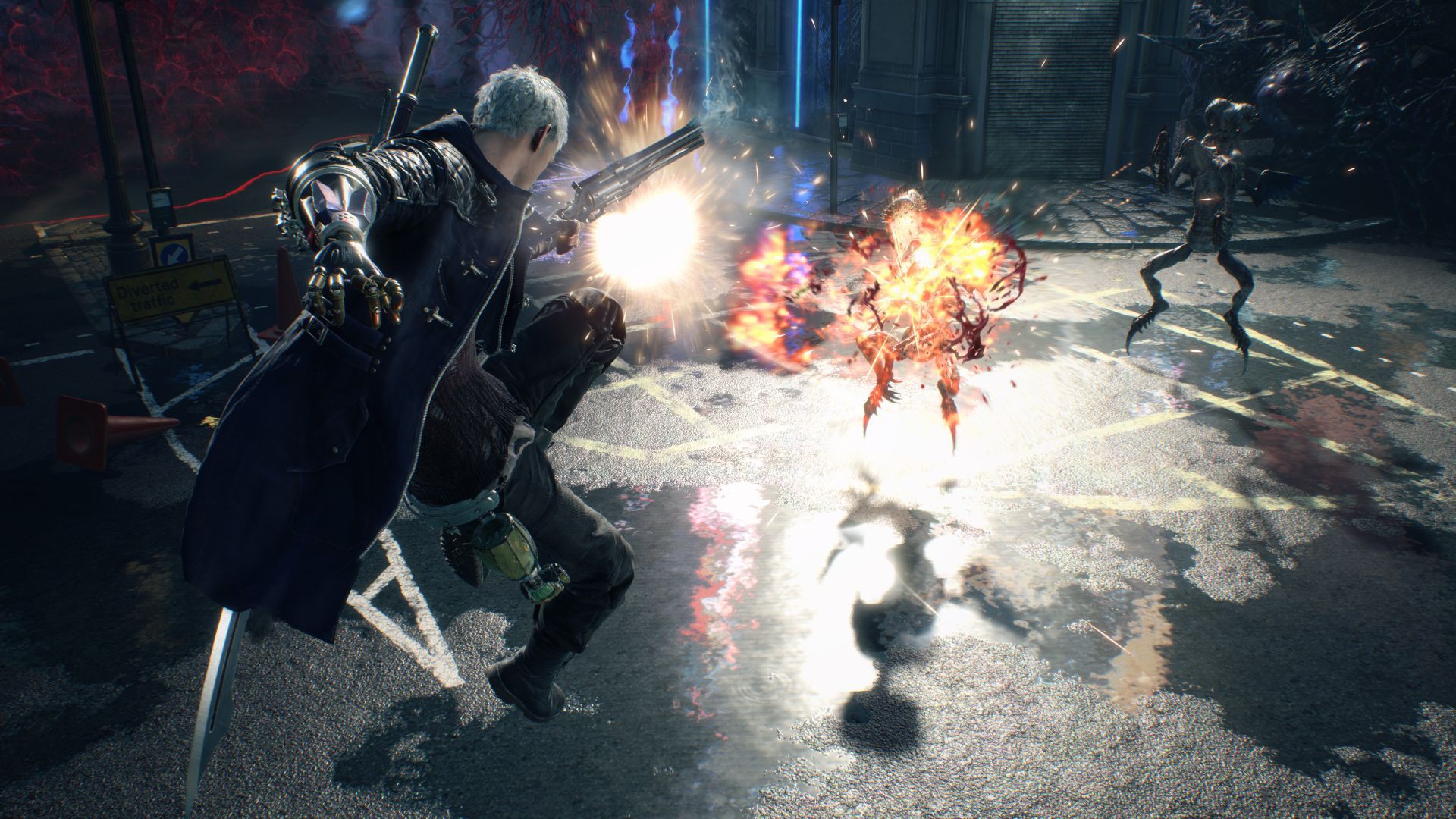
S: Those are all great games you listed. I love Ratchet and Clank and Lost Legacy a lot; those were both certainly in consideration. I was also torn about Gears 5, because it was really good and a great evolution for the franchise, but it was still ultimately just a better version of something I’ve played a million times. So it was hard for me to decide whether it deserved to be there. Same goes for the Ori games, which are both great but I just didn’t have the space for them.
Devil May Cry 5 was an interesting case for me. It’s the kind of game I talk about a lot as an example of how more AAA games should be like it, in that they should be more honest about how stupid they are. But I left it off, and that’s just kind of what happens when you only have a list of 15 games (I originally wanted to make it 10, but even that was too hard). And I know someone on the internet is going to read this and say, “How could you leave off God of War but include Yooka-Laylee and the Impossible Lair?” And my response is, “I made this list and you didn’t.”
D: That’s the beauty of the process, isn’t it? Why would you want every list to be the same? Anyway, play Furi, y’all. Play What Remains of Edith Finch.
S: Play No Man’s Sky! Play Sea of Thieves! Play Yooka-Laylee and the Impossible Lair!


